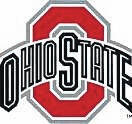First Posted: 1/9/2015
DALLAS — Jim Tressel will become a College Football Hall of Famer while he is still being punished by the NCAA.
Tressel won’t be the first inductee to the college hall with a black mark on his resume, but the National Football Foundation went outside of its comfort zone when it selected the former Ohio State coach as part of its latest class.
Nominated for the Hall of Fame by Youngstown State, where he won four Division I-AA national titles from 1986-2000, Tressel has two years remaining on the punishment he received from the NCAA for withholding information about an investigation of his players while at Ohio State.
Also among the class announced Friday by the NFF was Brian Bosworth, the outspoken Oklahoma linebacker who was suspended for his last college game for failing a test for performance-enhancing drugs.
NFF chief executive operator Steve Hatchell said Tressel’s missteps were carefully considered by the panel that reviews nominees.
“It was not hidden,” Hatchell said. “Frankly, the people that are involved know all about the NCAA issues. So it was openly discussed. The feeling was what he had done coaching-wise at Youngstown State was strong enough.”
Tressel will enter the hall as part of its Divisional Class, meant to honor players and coaches outside college football’s top level, now known as FBS but once called I-A.
“I am forever indebted to the outstanding student-athletes and coaches that have made this moment possible,” Tressel said in a statement released through Youngstown State, where he is now the university president.
The 62-year-old Ohio native is most well-known for his time in Columbus, Ohio, leading the Buckeyes. He was 106-22 in 10 seasons at Ohio State, including a national championship in 2002. He was forced to resign after the 2010 season after he admitted to lying to the NCAA and Ohio State about what he knew about some of his players trading memorabilia and equipment for tattoos.
Ohio State was punished with a one-year bowl ban, scholarship losses and all victories from the 2010 season were vacated. The NCAA imposed a five-year show cause order on Tressel that would open up a school to possible sanctions if it hired him as a coach. That order ends September 2016. He will be inducted later this year, on Dec. 8.
The NFF has generally tried to avoid controversial selections and Hatchell rarely has had to field questions from reporters about a new Hall of Fame class. He was grilled for nearly 30 minutes Friday about Tressel and Bosworth.
He didn’t have much to say beyond the fact that their issues had been reviewed by selectors. The third of five selection criteria given by the NFF is this:
“While each nominee’s football achievements in college are of prime consideration, his post football record as a citizen is also weighed,” the guidelines say. “He must have proven himself worthy as a citizen, carrying the ideals of football forward into his relations with his community and fellow man.”
In 1983, former LSU Heisman Trophy winner Billy Cannon was elected to the College Football Hall of Fame and then had the honor rescinded when he was arrested on federal fraud charges. Twenty-five years later, after Cannon was released from prison, he was re-elected to the Hall and inducted.
Then there is former SMU star Eric Dickerson, who ran for 4,450 yards and 47 touchdowns before going on to a record-setting NFL career. Not long after Dickerson left college, SMU football was shut down by the NCAA for paying players.
SMU has tried to push Dickerson as a candidate for the Hall of Fame over the years, to no avail.
“I don’t know why they have held him out,” said Lance McIlhenny, the former SMU quarterback who played with Dickerson and his Pony Express backfield mate Craig James. “I know a little about Bosworth’s situation. I know a little about Tressel’s situation. If those guys were just inducted, I know there were some character issues there that would have needed to be addressed.”
Oklahoma has been pushing for Bosworth’s induction for years. He was first eligible 20 years ago.
Bosworth said he was fine with having to wait and appreciates the NFF considering character.
“You are to be the face of college football, and to have people refer to you as I want my son to be like or I would love my daughter to be coached under,” he said. “The leadership roles that we have is the most paramount issue. Post your college career, how do you conduct yourself after that?”
Bosworth played for Barry Switzer at Oklahoma, a coach inducted into the Hall of Fame after running a program that landed on NCAA probation and had several players arrested on serious charges.
Hatchell said maybe the inclusion of Tressel and Bosworth will lead to a reconsideration of candidates such as Dickerson.
“As I think about it there might just be a little more openness to really study it,” Hatchell said, “which I think they did with these.”






